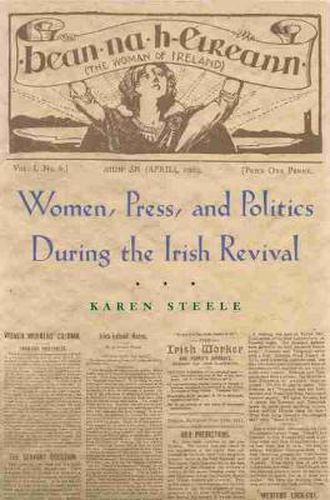Readings Newsletter
Become a Readings Member to make your shopping experience even easier.
Sign in or sign up for free!
You’re not far away from qualifying for FREE standard shipping within Australia
You’ve qualified for FREE standard shipping within Australia
The cart is loading…






Women, Press, and Politics explores the literary and historical significance of women’s writing for the most influential body of nationalist journalism during the Irish Revival, the advanced nationalist press. This work studies women’s writings in the Irish nationalist tradition, focusing in particular on leading female voices in the cultural and political movements that helped launch the Easter Rising of 1916: Augusta Gregory, Alice Milligan, Maud Gonne, Constance Markievicz, Delia Larkin, Hanna Sheehy Skeffington, and Louise Bennett. Karen Steele argues that by examining the innovative work of these writers from the perspective of women’s artistry and women’s political investments, we can best appreciate the expansive range of their cultural productions and the influence these had on other nationalists, who went on to shape Irish politics and culture in the decades to come.
$9.00 standard shipping within Australia
FREE standard shipping within Australia for orders over $100.00
Express & International shipping calculated at checkout
Women, Press, and Politics explores the literary and historical significance of women’s writing for the most influential body of nationalist journalism during the Irish Revival, the advanced nationalist press. This work studies women’s writings in the Irish nationalist tradition, focusing in particular on leading female voices in the cultural and political movements that helped launch the Easter Rising of 1916: Augusta Gregory, Alice Milligan, Maud Gonne, Constance Markievicz, Delia Larkin, Hanna Sheehy Skeffington, and Louise Bennett. Karen Steele argues that by examining the innovative work of these writers from the perspective of women’s artistry and women’s political investments, we can best appreciate the expansive range of their cultural productions and the influence these had on other nationalists, who went on to shape Irish politics and culture in the decades to come.